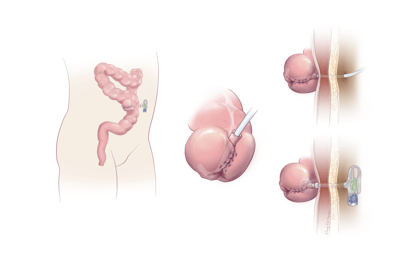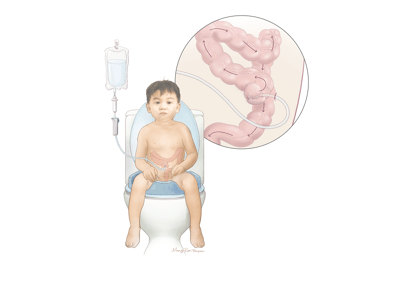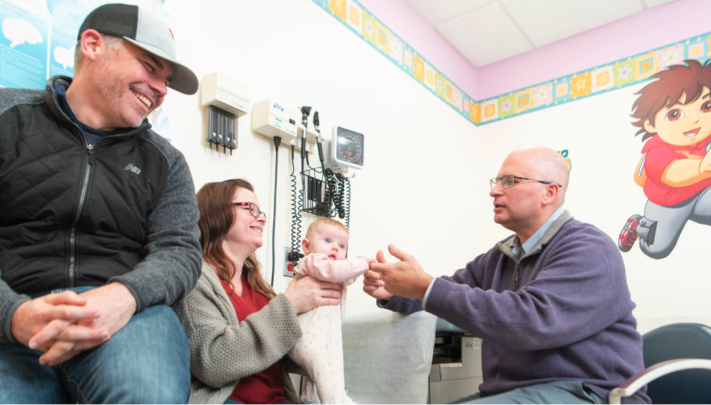Condition
Pediatric Chronic Constipation
What You Need to Know
Chronic constipation is also known as idiopathic or functional constipation, meaning that there is no identifiable or anatomic cause.
Key Symptoms
The most common symptoms of chronic constipation are:
- Painful bowel movements
- Less frequent stools (less than three per week)
- Large, painful stools that are difficult to pass
Diagnosis
Doctors may conduct motility studies to pinpoint the cause of constipation. Motility testing may include:
- Anorectal manometry
- Colonic manometry
Treatment
Treatment may include:
- Dietary changes
- Medication
- Behavioral therapy
- Surgery
Frequently Asked Questions
What causes chronic constipation in children?
What are the symptoms of pediatric chronic constipation?
How is chronic constipation diagnosed in children?
What is the treatment for chronic constipation in children?
What is a Malone appendicostomy?
What is a colon resection?
What is the ongoing treatment for chronic constipation in children?
Surgical Recovery and At-Home Care
Malone Appendicostomy (MACE) Recovery
How to Care for Your Child’s Malone Appendicostomy
Colon Resection Recovery and Surgery Site Care
How to Care for Your Child's Malone Site After Surgery
This video reviews every day care measures for your child's MiniAce device. The goal of this video is to educate you on how to keep the Malone site clean and keep your child from getting an infection. Before performing any of the instructed steps in the video, always check with our team or your child's pediatrician for safety.

Make an Appointment
If you suspect your child is experiencing chronic constipation, it's essential to seek medical help. We're ready to schedule your appointment and provide compassionate care.
Meet Our Team
Our providers are specifically trained to care for the needs of children with chronic constipation, providing expert care when your child needs it most. Get to know our team.
Departments that Treat Chronic Constipation

Comprehensive Motility Program
The Motility Program works to help treat a number of motility issues impacting your child's digestive tract, including abdominal pain, aspirating, constipation and incontinence. Learn more about our Comprehensive Motility Program.

Help Kids and Make a Difference
Invest in future cures for some of life's most devastating diseases. Give today to help more children grow up stronger.

 A
A 








